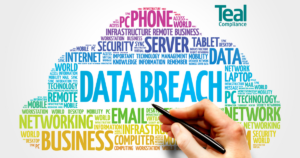Knowing how to prepare for a cyber attack is extremely important. This is especially so when you have a duty to protect your client’s data.
Most of us have faced that dreaded email which sends shivers down your spine. It starts with a simple greeting, but what follows can cause much panic and stress.
“Hi, I’ve received an email from one of your team, and we suspect it may be a scam, I thought you should know.”
The action you take within the first hour of a cyber attack may spare you from potential harm, and allow you to navigate through the intricate web of digital deception unscathed. That’s why knowing how to prepare for a cyber attack is essential.
The reality of cyber attacks
We often find ourselves falling into the trap of thinking a cyber attack will never happen to us. However, the truth is that the landscape has evolved significantly. With the rise of hybrid working and increasingly sophisticated hackers, the potential risks have intensified. It takes just one unsuspecting click on a seemingly harmless link for everything to unravel.
The Cyber Security Breaches Survey 2022, sheds light on the harsh reality of cyber attacks. The findings provide valuable insights into the prevalence, impact, and consequences of these incidents. Key findings from the survey paint a compelling picture of the evolving landscape of threats that businesses and individuals face in the digital age.
1. Prevalence of cyber attacks
The survey reveals that cyber attacks continue to be a significant concern, with a staggering 46% of businesses reporting that they’ve experienced cybersecurity breaches or attacks in the past year. This highlights the pervasive nature of the threat, and the need for heightened vigilance across industries.
2. Financial impact
The financial implications of cyber attacks are substantial, with businesses estimating an average cost of £8,460 for identified breaches. The survey reveals that larger organisations tend to face higher costs, with the average cost reaching £15,000. These financial consequences emphasise the importance of robust cybersecurity measures as a critical investment.
3. Human factors
Human error is still a leading cause of cybersecurity incidents, with phishing attacks being the most prevalent method of compromise. The survey highlights the need for comprehensive training and awareness programmes to empower individuals to recognise and mitigate potential threats effectively.
4. Consequences of cyber attacks
The impact of cyber attacks extends beyond immediate
financial losses. Breaches can lead to reputational damage, loss of customer
trust, and legal ramifications. The survey underscores the importance of
incident response and recovery plans to minimise the long-term consequences of
cyber incidents.
5. Proactive measures
The survey highlights the increasing adoption of proactive cybersecurity measures among businesses. This includes implementing cybersecurity policies, conducting regular risk assessments, and investing in security software and hardware. These measures show the growing recognition of the need to prioritise cybersecurity to safeguard sensitive data.
Now more than ever, it’s crucial for organisations to acknowledge the real and imminent dangers posed by cybercriminals. The evolving tactics and techniques employed by these individuals demand heightened awareness, proactive measures, and a collective commitment to cybersecurity.
What to do during a cyber attack
When faced with a cyber attack, you need to understand the urgency of the situation and move swiftly. Within the first hour, you should implement your response plan to contain the issue. We recommend the following proactive steps should be taken within the first hour.
1. Thorough system analysis
Engage an IT expert who specialises in cyber attacks. They’ll meticulously examine your systems to assess the extent of the breach. This comprehensive analysis provides crucial insights into the nature and impact of the attack.
2. Reinforcing security measures
Securing your digital assets is important. So, swiftly take actions such as changing email logins and passwords. Additionally, isolate the data breach to prevent further contamination of your systems, safeguarding the unaffected areas.
3. Strengthening authentication
To fortify your defences, promptly implement 2-factor authentication if you’ve not done so already. This adds an extra layer of security to protect sensitive information and ensure authorised access only.
4. Dedicated support team
To address the concerns and enquiries of your stakeholders, assign a dedicated member of your team to respond promptly and provide accurate information. Their role is crucial in keeping open lines of communication and offering reassurance during the incident.
5. Communication
There’s a need for seamless communication so make sure you brief your call team. This will ensure there’s an uninterrupted service and streamlined communication channel for your clients and stakeholders.
6. Transparent communication
Openness and transparency are paramount. We would suggest posting a detailed explanation of the incident on your website, ensuring your clients are informed about the situation.
Simultaneously, send an update to your mailing list. Recommend that if they’ve received the scam email that they contact their IT department immediately.
Incidents like these often serve as a stark reminder of the cunning and sophistication of cybercriminals. Despite regular screening of your systems, you can still experience an attack due to the ever-evolving threats we face from the baddies!
How to prepare for a cyber attack
Here are our top three tips on how to prepare for a cyber attack, which will enable you to respond swiftly to a cyber attack situation and ensure effective damage control.
1. Have a comprehensive plan in place
One of the key factors that will enable you to respond quickly is ensuring you have a well-defined disaster recovery plan ready to be implemented as soon as an issue arises.
It’s crucial for every organisation to proactively establish a plan before any potential exploitation occurs. This plan can be as simple as naming a point of contact who’s familiar with disaster recovery protocols and can immediately initiate necessary actions to mitigate further damage.
While the aftermath can be addressed over time, having someone who knows how to promptly secure the systems is essential.
2. Build relationships with cybersecurity experts
In the face of an attack, wasting valuable time searching for reliable cybersecurity professionals is an unfortunate setback. We highly advise establishing connections with competent cyber experts in advance, and have their contact details readily accessible.
By having trusted experts on hand, you can swiftly engage their services during emergencies, minimising response time. This will optimise the chance of a successful resolution. If needed, we’re happy to share the details of our own cybersecurity specialist, whose expertise has been invaluable to us. Get in touch.
3. Prepare clear and transparent communications
When faced with a crisis, it may be tempting to keep the situation under wraps and avoid acknowledging any issues. However, we firmly believe that adopting an open and honest approach is the most effective way to handle such situations.
By being transparent with stakeholders and those who may be affected, firms can prove their commitment to protecting individuals and keeping trust. It’s crucial to have a well-thought-out communication strategy in place, ensuring that key messages are prepared in advance to promptly inform and address concerns.
It’s important to recognise that even major institutions with substantial worth have vulnerabilities and have experienced exploitations, such as ransomware attacks. While it’s impossible to completely avoid all risks, being prepared to handle problems swiftly when they arise is an invaluable skill.
Gaining valuable insights from a cyber attack
One fundamental truth holds: you can’t glean valuable insights from a situation that’s swept under the carpet and hidden from view. By embracing this principle, you can swiftly recognise the approach you should choose, enabling you to draft the necessary wording promptly and issue your message effectively.
When this happened to us, we were able to effectively reflect on the experience. We realised the potential benefits of preparing such communications in advance, as a proactive measure. With this realisation, we’ve now taken proactive steps to create a repository of pre-drafted messages, ensuring we’re better equipped for any future challenges that may arise.
We were also reminded of the strength and resilience that lies within our network. It was the collective watchfulness and genuine care of individuals in our community that helped to fortify our defences against cyber threats.
While we sincerely hope that you never encounter a day like the one, we experienced, we believe that preparation is key. Having a well-defined plan in place in advance will undoubtedly enhance your readiness and ability to navigate unforeseen circumstances.
Get in touch
As data protection experts, we work with firms to ensure that procedures and controls are in place to protect the data they process. We offer training courses for staff on protecting clients and themselves from cybercrime and data loss. If you’d like to speak to one of Teal’s experts about how we can help, simply get in touch.




